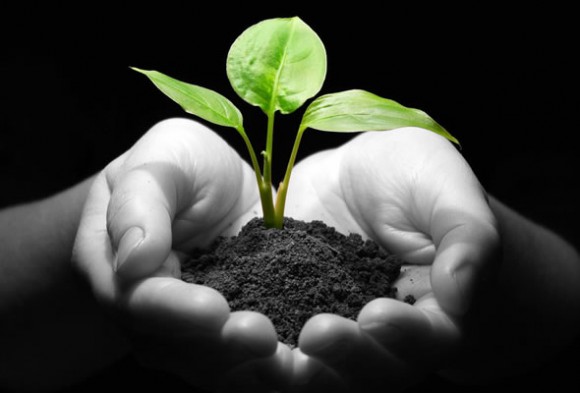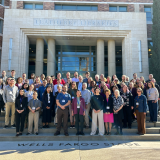
The Future of Food Sustainability
July 24, 2014
This article, written by Joe Yogerst, originally appeared on the Los Angeles Times website.
One increasingly important aspect of food science is sustainability — the ability to reduce spoilage and to conserve and protect resources throughout the entire food production process.
As the population continues to grow — and the United Nations projects that the world will reach 9.6 billion inhabitants by 2050 — producing enough food for all of these people looms as a major issue.
“Sustainability plays a role in every aspect of the food supply chain,” said Anuradha Prakash, director of Chapman’s food science program and a leading authority on sustainability. “Growing food requires inputs such as seeds, fertilizer, animal feed, fuel and water.”
While the challenge is especially acute in high-need areas like Africa, Asia and Latin America, where food production is struggling to keep up with population growth, Prakash said that the problem is exacerbated by other issues such as dwindling fresh water supplies, climate change and poor farming practices in many areas.
At the same time, there are plenty of opportunities for the food producing industry to conserve resources — reducing water and energy use, lowering their carbon footprint and becoming more sustainable in general, Prakash said. “Some companies are taking the lead … evaluating the entire life-cycle needs of each product and changing over to adopting zero-waste policies or net-zero water use policies, while at the same time implementing social responsibility policies and maintaining profitability.”
According to Prakash, the U.S. is one of just a few Western countries that doesn’t have a government certification for sustainable foods. Though certification can mean compliance difficulties, Prakash believes it is necessary to reduce “green washing” (putting forth misinformation to appear more environmentally responsible) and to educate the public about green products. “It would be nice to define that a little more clearly.”
A cost-versus-benefit debate also comes into play when discussing food science, sustainability and regulation. As an example, Prakash noted that California has very strong air-quality management. The end result is cleaner air for Southern Californians, but at a cost to food companies.
“You hear about food companies moving out of California because of all these environmental challenges that are being imposed by our regulators,” Prakash said. “We see that benefit as consumers, but then the cost to businesses and the cost to employment and the cost of goods is also affected — everything. It’s a difficult role for the food producers to play, but that’s where politics intersect with food science for sure.”

